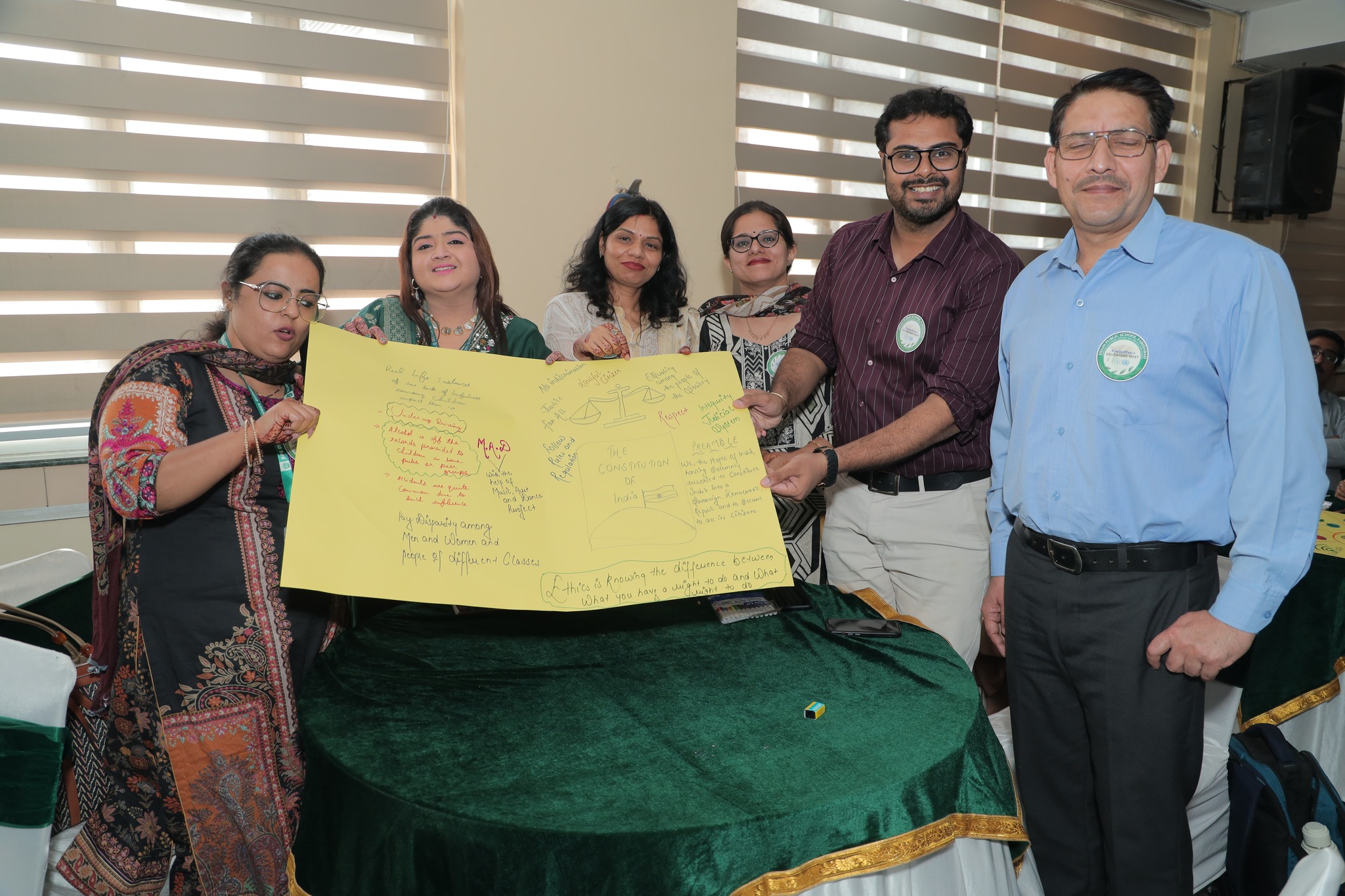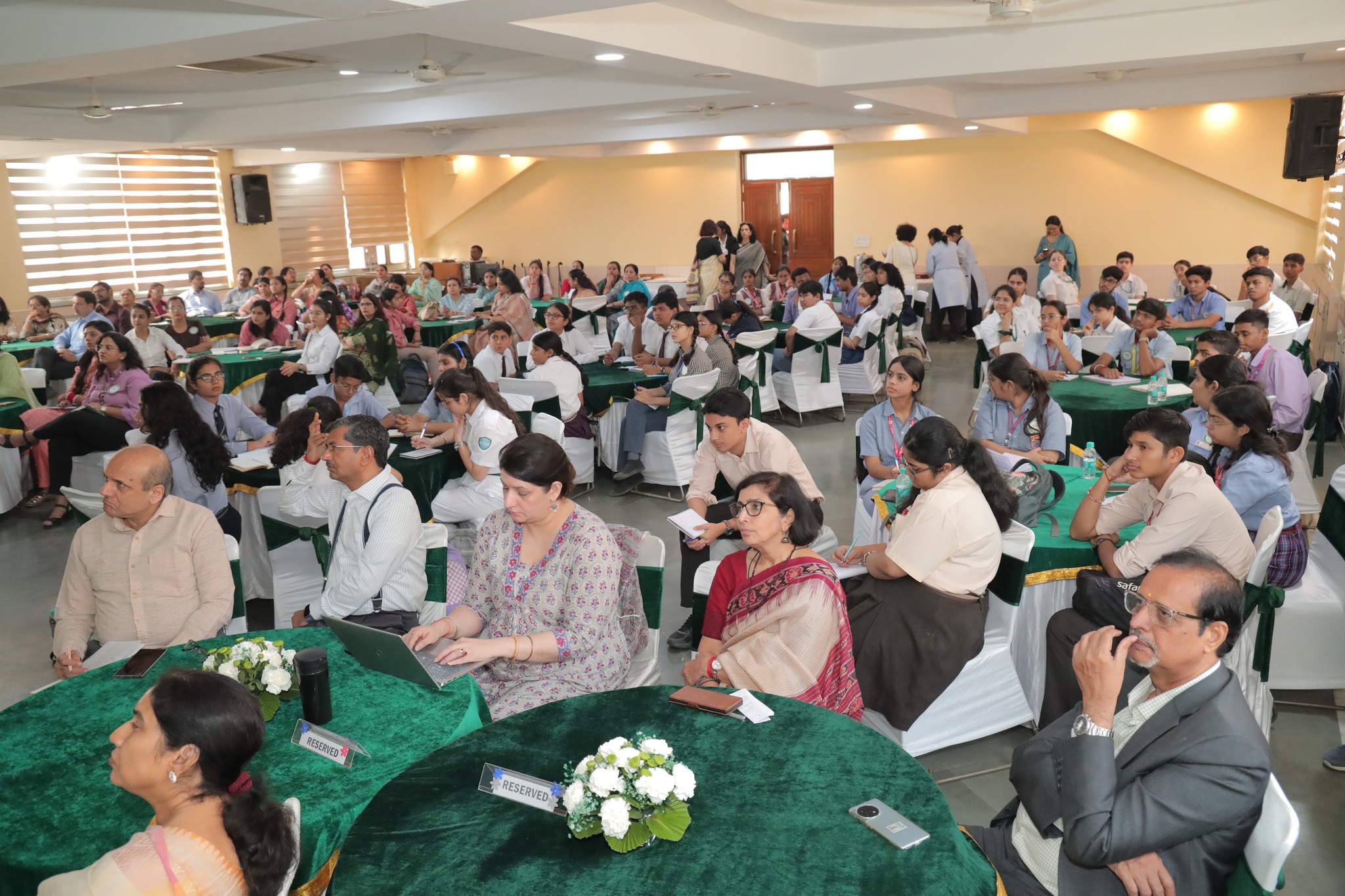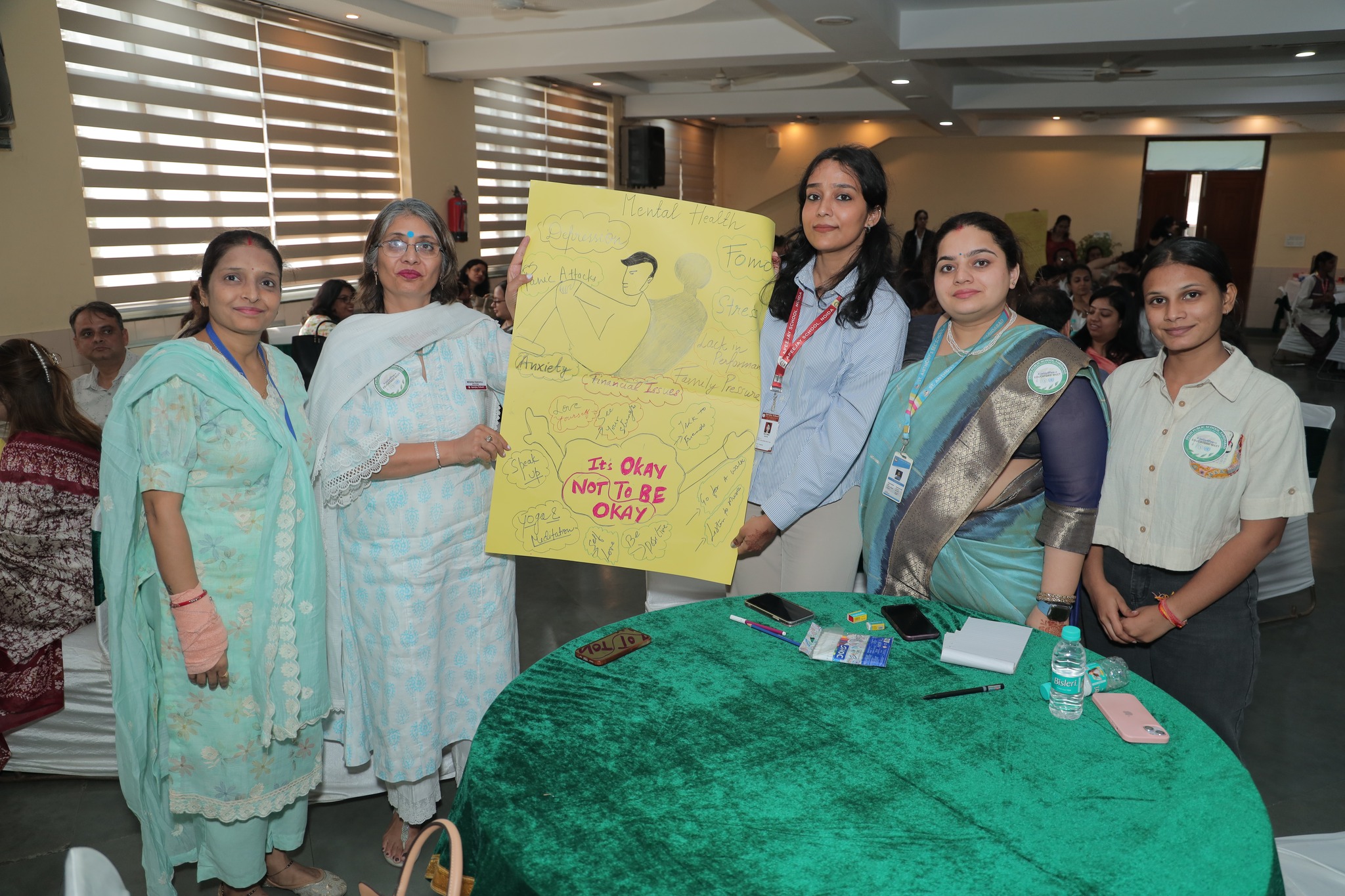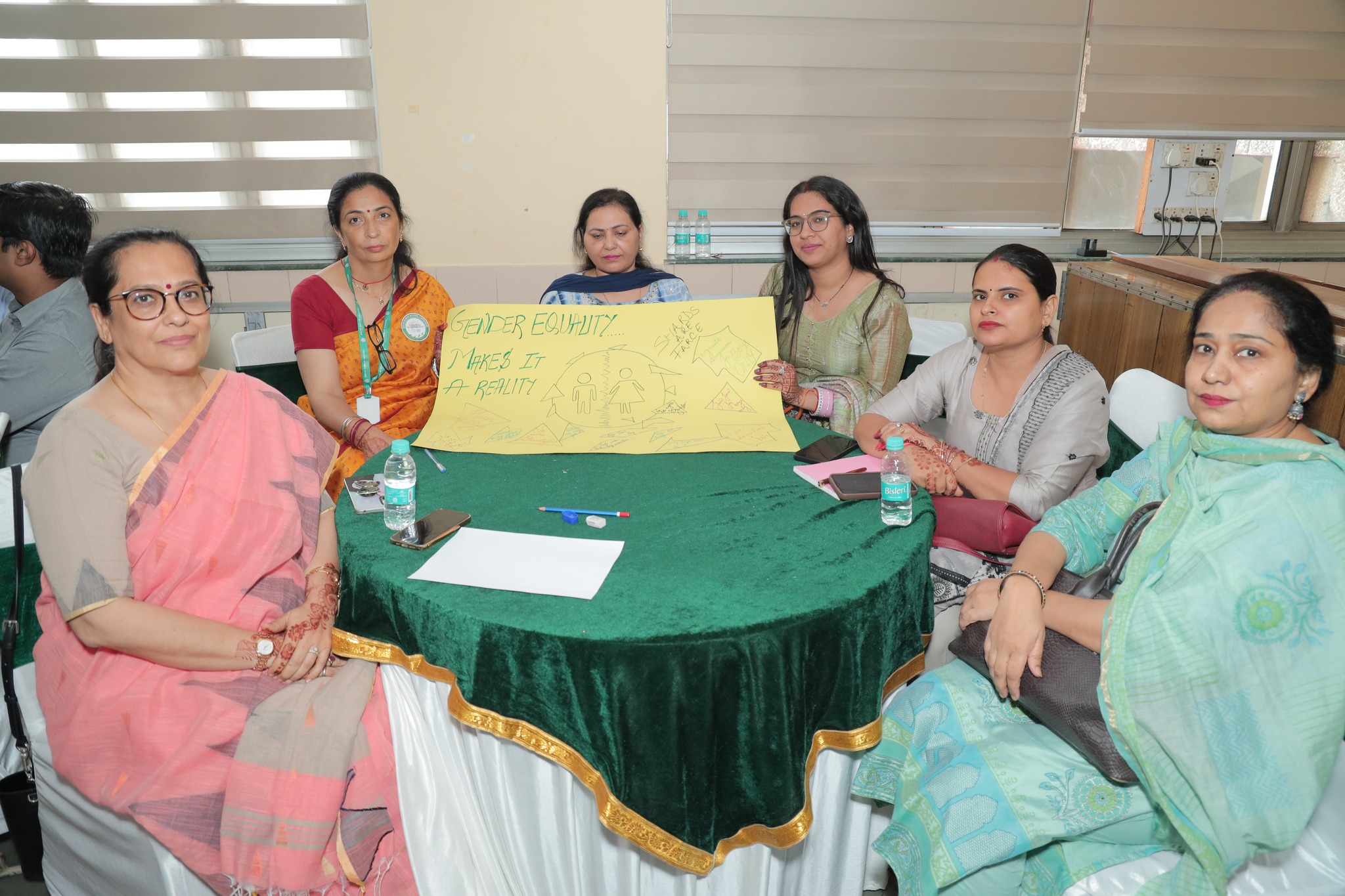India: With RiseUp4Peace, Haryana educators commit to enhance classroom engagement on peace, integrity and inclusion

Faridabad, India/21 October 2024: “We often overlook mental health and online safety in our daily lessons. But we must embed these values into the curriculum and truly shape lives.”
This sentiment, shared by a Principal, set the tone for the RiseUp4Peace capacity boosting workshop, where 118 Principals, educators, and students from 31 schools in Haryana assembled at Delhi Public School, Faridabad, to explore new educational approaches for a resilient generation. Led by Dr. Ashok Pandey, Global Peace Fellow and Mr. Samarth Pathak, UNODC Communications Officer for South Asia, the hands-on discussions ignited a shared mission to empower young minds with peace, integrity and lawfulness.
The workshop underscored a critical realization — students are increasingly aware of the challenges surrounding them and want safe spaces in their schools to discuss and address these pressures. For educators like Ms. Alka Kumar, this newfound awareness is a call to action. “I have taught for over a decade, but this experience has redefined my role. Today’s students are perceptive and willing to engage in solutions. They look to us to guide them, and this responsibility is transformative,” she shared.

Participants exchanged insights and reflected on core themes affecting young people today: mental health, online safety, ethical decision-making, gender equality and inclusion. Educators worked closely with students, forming mixed groups to tackle issues like peer pressure, gender-based violence, substance use and cyberbullying. As students spoke openly, many educators were struck by the clarity and urgency in their voices.
Central to the RiseUp4Peace initiative is the integration of peace and lawfulness into school cultures, a goal aligned with India’s National Education Policy (NEP) 2020. Many educators saw this gathering as a timely opportunity to adapt their teaching strategies. “Our curriculum is evolving with NEP 2020 and focusing on values like respect and empathy is more relevant than ever. These discussions helped me see that peace education isn’t just an add-on — it’s fundamental,” remarked Mr. Anil Kumar, Principal of DPS Faridabad.

The practical approaches discussed, such as peer-led workshops on cyber safety and storytelling sessions on ethical decision-making, resonated deeply. One teacher suggested organizing “open conversations” for students to express their struggles and seek guidance. The enthusiasm from students underscored the importance of a participative approach to education — one where young voices actively shape school environments.
Looking ahead, the educators pledged to initiate collaborative activities under the #RiseUp4Peace framework, focusing on sustainable goals that align with SDG16 — fostering peace, justice, and strong institutions. Many are eager to incorporate these values not only into formal lessons but into daily interactions and school culture. “When we empower students to stand up for peace and integrity, we prepare them to resist negative influences,” said Mr. Pathak.
In the closing reflections, Dr. Ashok Pandey summed up the collective sentiment: “Education is more than academics; it is about nurturing responsible citizens. The RiseUp4Peace initiative provides the tools, but the passion must come from each one of you.”

RiseUp4Peace is an effort in this direction, as a coalition of educator partners committed to take these transformative insights into classrooms through sustained capacity building of educators, interactive students’ engagement and fostering cross-learning.
Join the RiseUp4Peace initiative: t.ly/lh9T7
This activity contributes to SDG 4, SDG5, SDG 16 and SDG 17: https://sdg-tracker.org/
(Supported by RB23)